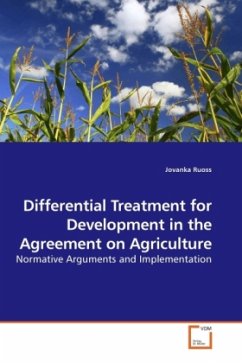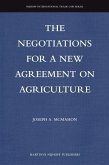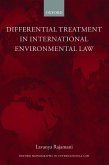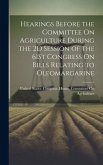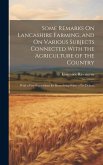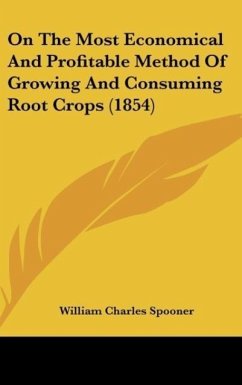Among international organizations, agriculture is widely recognized for its positive contribution to human development. The aim of the ongoing Doha Round negotiations is to foster agricultural trade liberalization to enhance growth in this sector and at the same time, reduce the adjustment costs involved. In the Agreement on Agriculture (AoA), the latter objective takes the form of Special and Differential Treatment (SDT). This publication answers the question on how differential treatment for development in the WTO AoA can be normatively justified and how it could be improved. The author takes the capabilities approach of Amartya Sen from which to draw normative arguments for differential treatment for development. Based on this approach, fair trade and capacity building are two relevant functions of the development dimension of the AoA. After a thorough introduction to the AoA, it will be shown that in general, SDT provisions therein are normatively justified as they live up tothese functions. Therefore, developing countries should not push for more SDT. Rather, they should demand more assistance so they can benefit from created development opportunities.
Bitte wählen Sie Ihr Anliegen aus.
Rechnungen
Retourenschein anfordern
Bestellstatus
Storno

